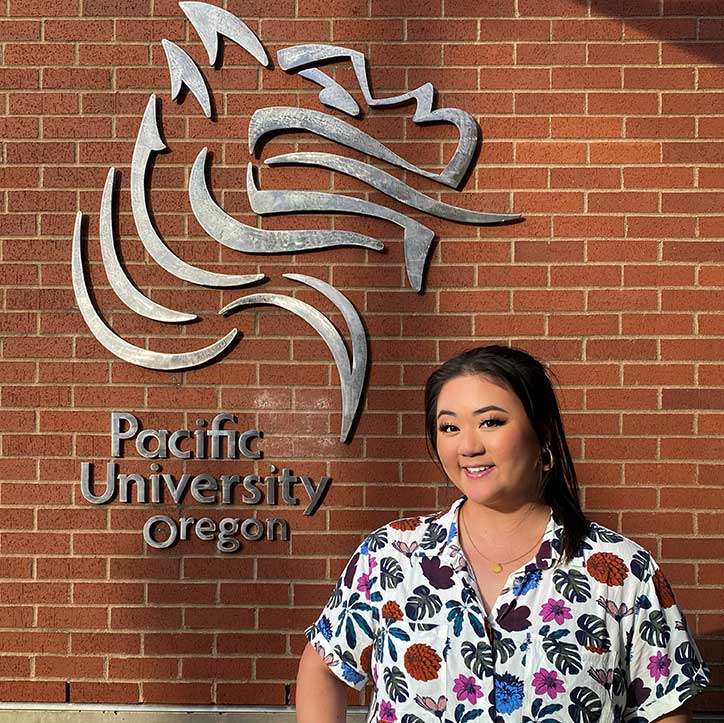“SLC prepared me to think critically and how to incorporate social justice into my work.”
After taking undergraduate courses at Sarah Lawrence such as “Child and Adolescent Development in North American and African Contexts: Opportunities and Inequalities” and “Global Child Development,” Soleil Groh ‘16 MA ‘18 decided to continue their education at the College. As a student in the MA in Child Development Program, Soleil says they learned that “clinical work is more than simply seeing a child and their presenting symptoms.” With this foundational knowledge, Soleil is a doctoral student at Pacific University.
Why did you decide to pursue your MA in Child Development at Sarah Lawrence?
I initially wanted to become a pediatrician and decided to pursue my MA in Child Development to better understand children. During my time in the graduate program, I realized I held a deeper love for psychology than medicine, which inspired me to pursue a career in the field of child psychology. Also, I loved my undergraduate experience at SLC, so I wanted to stay a little longer to expand my learning.
Is there a tenet of the program that particularly resonates with you?
I believe it is incredibly important to study child development in a wide range of contexts and environments, especially as someone who works as a clinician. There is no one-size-fits-all way of treatment planning when working with children and families, so it is crucial to understand the unique contexts and factors that play a role in development. Learning about child development in different contexts helps you recognize your own privileges and biases, which is important to think critically about when operating from your own lens.
How did your time at Sarah Lawrence prepare you for the work you’re doing now?
SLC prepared me to think critically and how to incorporate social justice into my work. I’ve learned how to advocate for underserved populations and understand the additional barriers in place that prevent access to care. SLC helped me not only recognize the biases in psychology research, but how bias can show up in other contexts, such as school or medical settings. I’m thankful for being taught how to express my ideas and engage in effective dialogue with others, even if we might not hold the same views.
Is there a course, faculty member, or fieldwork placement that particularly influenced you?
[Kim Ferguson, child psychology faculty and Dean of Graduate & Professional Studies] taught me to approach child psychology in a holistic way that acknowledges the numerous factors that can greatly influence a child’s development. She also showed me how to conduct research with participants in a collaborative way and how to recognize the importance of cultural contexts when working with different populations. I feel incredibly lucky to have had her as my professor because she provided me not only an exceptional education, but the emotional support that is needed to face the challenges of grad school. She shows her love and care for her students and the community both inside and outside of the classroom, which has inspired me to do the same.
What advice would you give to a prospective student?
Explore the world with curiosity. SLC teaches you the art of thinking critically and forming your own conclusions from what you learn. Curiosity is what will help you grow.
